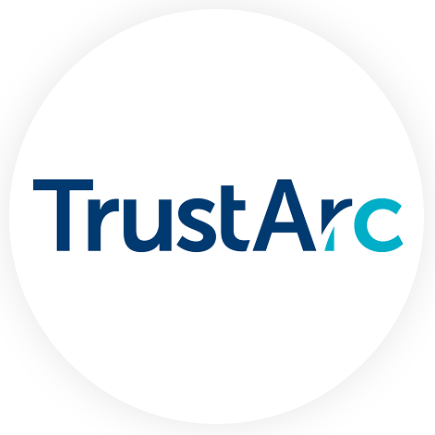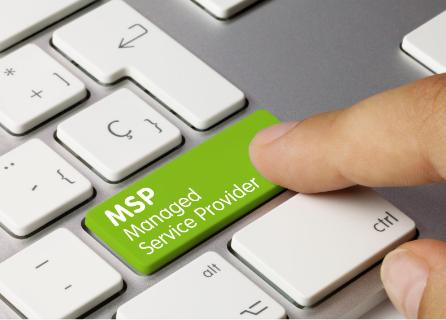How to Pick an MSP: Key Questions to Ask
You started your business so you could do what you love, and do it best. But when your business starts to experience growth, you’ll find yourself needing resources you never thought you’d need: design, accounting, human resources – and, arguably most importantly, choosing the right IT support.
It’s not really something that a busy business owner should try to tackle on top of everything else… The potential risk of making a mistake isn’t worth it.
You need to ensure that your and your customers’ data is secure, the technology to run your business is up and running to the highest standard, and that you have the support you need – wherever and whenever you need it. But there are many options online, available with just a quick Google search. You need to make sure your business is taken care of, so how can you know which one is the right choice for your business? How do you ensure data security? Which is the best IT support for your business?
These are some factors to consider when selecting your Managed Service Provider (MSP) / IT company, to make sure all your bases are covered.
Remote Capabilities
This one’s at the top of everyone’s list for a reason; going remote means having the support you need, anytime and anywhere.
Benefits: Going remote not only informs an MSP’s capabilities and competence by how they use technology for customer experience, but also opens many doors as to how you can access the information you need, whenever you need it. Remote services provide the most accessibility, and usually save money. We go more into the benefits and importance of remote IT capabilities here.
When you’ll need it:
to update something pertinent and time-sensitive when you’re not at your office
when you need consistent data monitoring while away at an event
for brief inquiries that can be resolved with a quick video call instead of an in-person visit
to integrate into crisis management
Understanding MSP Cost Structures
There are a few different cost structures to MSPs: per-user, per-device, tiered and a la carte.
Benefits: The benefits vary depending on which cost structure(s) is offered. Per-user is a fairly scalable option, considering you’re able to add as many devices per employee at no extra cost. Per-device means that every device is counted and charged, which could be beneficial if you only use certain devices. Tiered gives you a range of support needs that you can pick from, illustrating what you might need and might not in a way that’s easy to understand, and a-la-carte simply means you get to select services you need and services you don’t, since you know your business best.
When you’ll need it: You’ll need the flexibility of options so that you can get the most cost-effective solutions catered specifically to you. If an MSP only offers a certain type of coverage, you may be paying for a service you’ll never use, so the variety of options is something to look for. NerdsToGo offers a baseline of two packages catered for scalability, but can also accommodate other needs through custom solutions.
Scalable Solutions for Business Growth
Scalability essentially indicates how much your MSP is willing to adapt and grow as your business grows – and therefore, as your business’ needs grow. You should share your vision, plans and long-term goals with your MSP when making your decision to ensure they can be fully available for every step of the way.
Benefits: This is related to cost structures; you can opt-in for a higher tiered level of services, you can add users as necessary, or you can add devices as the need comes.
When you’ll need it: When your business is experiencing any kind of growth, there’s a lot to consider and keep track of. Your MSP should be ready, prepared and even be your cheerleader – enthusiastic to take on the growth with you, without any growing pains or unanticipated hiccups.
Reviews and Track Record Importance
MSPs often advertise their clients on their website. In addition, Google reviews, just like any other service, always show the true nature of an MSP’s quality of service. For example, read some of NerdsToGo’s testimonials here.
Benefits: Knowing that your business uses the same IT service provider that many other businesses use with a clean track record will give you peace of mind that your tech and data is in reliable hands. Think about how often you trust someone’s word when they give you a suggestion of any other product or service.
When you’ll need it: You’ll certainly be glad to have done your vetting when you don’t run into any unforeseen problems or oversights that you otherwise might have missed when looking for your MSP.
Service Level Agreements
Service level agreements, or ‘SLAs,’ generally cover availability and responsiveness, which means how soon a ticket can be open and resolved.
Benefits: It sets reasonable expectations between your business and your MSP. It also indicates how realistically you can expect issues to be responded to and resolved depending on their urgency, giving you a glimpse into an MSP’s efficiency of service.
When you’ll need it: You’ll need it to get an idea of what kind of promptness of service you should expect, and if possible, to vet and compare MSPs. It’s important to expect varying levels of promptness depending on the urgency of the issue.
Benefits of Proactive IT Management
Proactivity is arguably one of the most pertinent things to look for in an MSP. It entails regular updates, data backups and upkeep of technology (making sure it’s not dated).
Benefits: Proactive IT service management benefits are endless and priceless: put simply, deftly avoiding problems before they can manifest. The goal should be to catch issues before they can fully take root and spiral into disaster, or to take measures to make sure such issues never bubble up.
When you’ll need it: When a power outage affects your area, when you are due for an industry regulatory inspection, or especially when there’s a cybersecurity breach – keep reading as to why you should be prepared for that – there are many situations in which you’ll need proactivity in an MSP.
Disaster Recovery Planning with MSPs (see last blog)
Disaster planning and crisis management is never fun, but looping your MSP in with your current plans can ensure you don’t miss anything vital when something comes up – or help you come up with a business continuity plan, if you don’t already have one.
Benefits: The expertise of an MSP is invaluable when it comes to securing data, internal and external communications, device or network failure, among other things that can go wrong.
When you’ll need it: You’ll want an MSP’s eyes on your disaster plan to make sure nothing gets missed. They can prepare for certain unfortunate events and usually prevent them, as well as generally minimizing downtime for unforeseen hiccups.
Consider this your IT support checklist or evaluation guide of important considerations to assess when selecting the best MSP option for your business’ MSP.
(Hint: We fit the bill for professional IT solutions. See how.)




